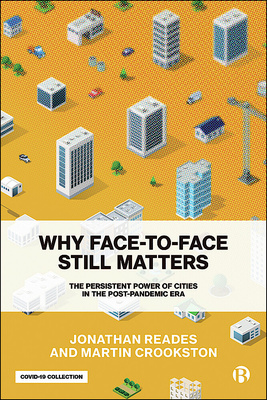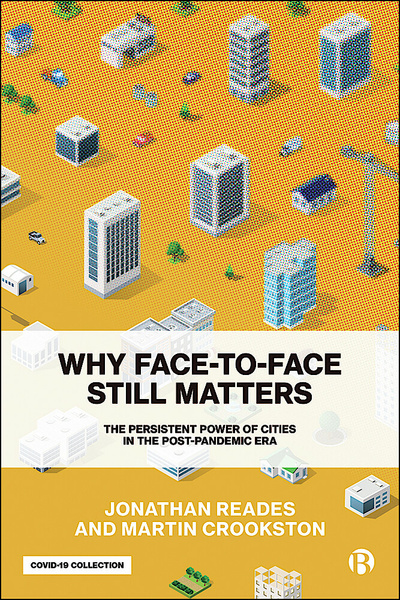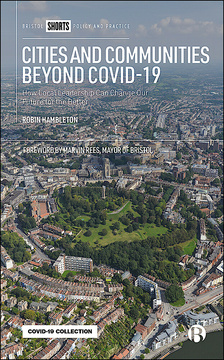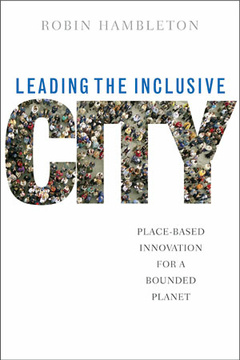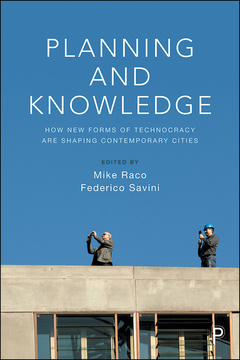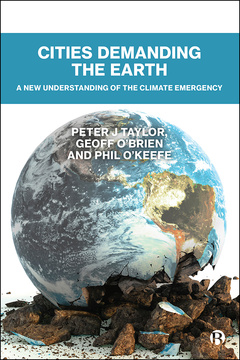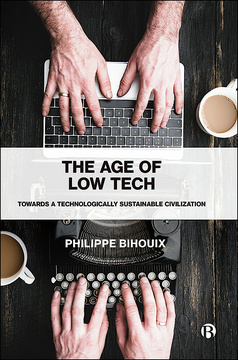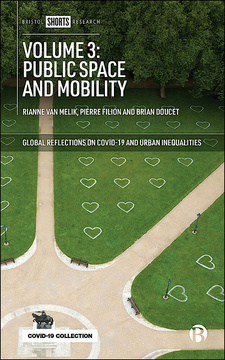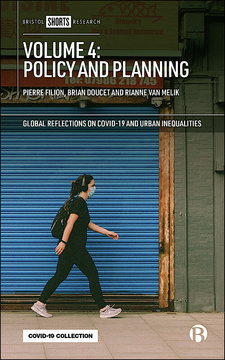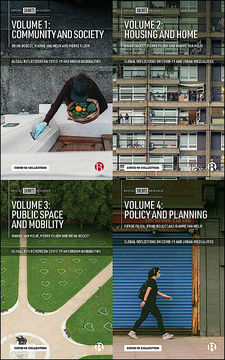Why Face-to-Face Still Matters
The Persistent Power of Cities in the Post-Pandemic Era
By Jonathan Reades and Martin Crookston
Published
Mar 18, 2021Page count
252 pagesISBN
978-1529216004Dimensions
234 x 156 mmImprint
Bristol University PressPublished
Mar 18, 2021Page count
252 pagesISBN
978-1529215991Dimensions
234 x 156 mmImprint
Bristol University PressPublished
Mar 18, 2021Page count
252 pagesISBN
978-1529216011Dimensions
234 x 156 mmImprint
Bristol University PressPublished
Mar 18, 2021Page count
252 pagesISBN
978-1529216011Dimensions
234 x 156 mmImprint
Bristol University PressIn the media
On our blog: COVID and beyond: The death of the city?
'Is Covid the end of cities’ dominance?' in Inside track
Why face-to-face still matters: Reasons to be cheerful about the future of place on EG Property Podcasts
What makes a great city? Why do people and businesses still value urban life and buildings over a quiet life in the suburbs or countryside? Now might seem a difficult time to make the case for social contact in urban areas – so why is face-to-face contact still considered crucial to many 21st-century economies?
In a look back over a century’s-worth of thinking about cities, business and office locations, this accessible book explains their ongoing importance as places that thrive on face-to-face meetings, and in negotiating uncertainty and ‘sealing the deal’.
Using interviews with business leaders and staff from knowledge-intensive, innovation-rich industries, it argues for the continuing value of the 'right' location despite the information revolution, the penetration of artificial intelligence (AI), and the COVID-19 pandemic. It also explores why digital systems have transformed businesses in cities and towns, but in fact have changed surprisingly little about the challenges of business life.
This timely book gives readers, including developers, investors, policy-makers and students of planning or geography, essential tools for thinking about the future of places ranging from market towns to great World Cities.
“A well-written, scholarly and stimulating guide to thinking about and debating possible and uncertain urban futures.” Urban Policy and Research
“A book for developers, investors, policymakers, and academics, Why Face-to-Face Still Matters urges readers to consider the value of city life and face-to-face communication in our modern economy — and what that means for the future of business.” Princeton Alumni Weekly
“There is much to like in this book… And all to show that although the new ICTs could reshape face-to-face contacts, the latter are and will remain relevant to workers and firms.” Regional Studies
“A persuasive reminder of why cities will continue to thrive in a digital world – they enable people to share knowledge and experiences, to work together and to innovate through face to face contact.” Andrew Carter, Centre for Cities
“Amidst the fog of the pandemic this book, eight years in the making, provides a timely and powerful light to guide towns and cities into the new future.” Chris Brown, igloo Regeneration
“Highly readable and endlessly thought-provoking, this book helps us understand how towns and cities can continue to prosper in the wake of COVID-19 and galloping technological changes.” Shaun Spiers, Green Alliance
"With superb timing, Reades and Crookston navigate a future for our cities by drawing on a rich understanding of their past. A luminous must-read for all concerned with the continuing vitality and potential of our cities." Jackie Sadek, UK Regeneration
“With rich interview material, this book offers a stimulating entre into a necessary debate about identifying and sustaining economically crucial kinds of personal interaction - despite AI, COVID-19 and all!” Ian Gordon, London School of Economics and Political Science
"This lively book is a timely and perceptive celebration of the virtues of face-to-face interaction, the value of cities in bringing people together, and the role of technology in strengthening and augmenting those relationships." Richard Brown, Centre for London
“An important contribution to the enduring debate on the importance of place. The global pandemic has halted most of our face-to-face interaction, but the authors demonstrate that, while Zoom may alleviate some of their necessity, in situ interactions remain indispensable and the cities and urban infrastructure in which they occur will thrive again because they must.” Elizabeth Currid-Halkett, University of Southern California
"The authors share Peter Hall’s unwavering optimism that cities have the capacity to reinvent themselves in times of crisis. Technological developments in ICT have reinforced, not diminished, the importance of cities. Yet, written at the time of the Covid-19 pandemic crisis, the book is a wake-up call that the resilience of all cities rests on the health and wellbeing of physically clustered but mobile people in an increasingly interconnected urban world." Kathy Pain, Henley Business School, University of Reading
Dr Jonathan Reades is an Associate Professor in the Centre for Advanced Spatial Analysis at UCL. He is a human geographer who uses quantitative social science methods to explore contemporary challenges in urban and regional development. He has a background in both planning and geography, and programming and ‘big data’ analytics, and has published widely in these areas.
Martin Crookston is a strategic planning consultant, with experience ranging from London and Abu Dhabi to Prague and the Paris region. An urban economist and planner, he was a member of Lord Rogers’s Urban Task Force, where he chaired the Working Group on Design & Transport. Much of his recent work has focussed on housing and regeneration, and he is the author of Garden Suburbs of Tomorrow? - a new future for the cottage estates (2014).
The Story so Far;
Moving Stuff Around;
Making Markets;
Doing Deals;
Talking Shop;
Let’s Talk: F2f Interaction Now;
So What for 21st Century Places?;
And in the End…







